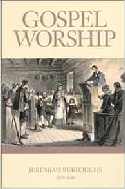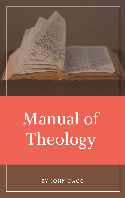Ads
Contents
- 1 Pastoral Covetousness
- 1.1 New Testament Passages
- 1.2 The Man of God is an Example of Christ to all
- 1.3 Consequences of a Covetous Minister
- 1.4 Covetousness is a gateway sin, bringing many other sins with it.
- 1.4.1 Covetousness questions God’s judgments in our provision.
- 1.4.2 More articles of Interest
- 1.4.3 Covetousness destroys contentment
- 1.4.4 Covetousness demands excess and extremism.
- 1.4.5 Covetousness destroys worship.
- 1.4.6 Covetousness destroys any respect for authority.
- 1.4.7 Covetousness blinds man to the reality of things.
- 1.4.8 More articles of Interest related to pastoral covetousness
- 1.4.9 A covetous man gets violent when he doesn’t get what he wants.
- 1.4.10 A covetous man has no ethics in achieving his idol (desire).
- 1.4.11 A covetous man makes truth what serves his purposes.
- 1.5 Conclusion
Pastoral Covetousness
Pastoral Covetousness: Effects of Covetousness
By David Cox
A false prophet is easily identified by their Pastoral Covetousness. Simply put, he desires a high life which he gets from his relationship with the church. In this study, we look at how the Bible requires the man of God to stand far off from covetousness. To not associate with it in any way.
This is the first article in a series of articles on money and the minister. See Tag: http://www.theologicalsystems.com/tag/money-and-the-minister/
New Testament Passages
Paul’s Personal Life
Acts 20:26-34
Acts 20:33 I have coveted no man’s silver, or gold, or apparel.
Paul’s personal example is that he willingly worked with his own hands in order to sustain himself and what he did was his understanding of that biblical principle. Let’s be clear. Paul was a missionary and a minister of the gospel. He who dedicates himself to the gospel should live from that same work.
1 Corinthians 9:14 Even so hath the Lord ordained that they which preach the gospel should live of the gospel.
So his “right” to a livable wage from his ministry is firm.
But his personal conduct, behavior, and character were one free from desiring the good things other people had.
Paul’s Ministerial Requirements
1Tim 3:2 A bishop then must be blameless, the husband of one wife, vigilant, sober, of good behaviour, given to hospitality, apt to teach; 1Tim 3:3 Not given to wine, no striker, not greedy of filthy lucre; but patient, not a brawler, not covetous;
Titus 1:6 If any be blameless, the husband of one wife, having faithful children not accused of riot or unruly. Titus 1:7 For a bishop must be blameless, as the steward of God; not selfwilled, not soon angry, not given to wine, no striker, not given to filthy lucre; Titus 1:8 But a lover of hospitality, a lover of good men, sober, just, holy, temperate; Titus 1:9 Holding fast the faithful word as he hath been taught, that he may be able by sound doctrine both to exhort and to convince the gainsayers.
A most basic requirement in the mind of Paul was a complete freedom from desiring riches of others as a man of God. That kind of person that is very much moved by “how much he makes”, and “whether he has luxury given to him” is not fit or worthy to be called a man of God or work as a minister.
The Man of God is an Example of Christ to all
Heb 13:5-6 Let your conversation be without covetousness; and be content with such things as ye have: for he hath said, I will never leave thee, nor forsake thee.
Josh 1:5 There shall not any man be able to stand before thee all the days of thy life: as I was with Moses, so I will be with thee: I will not fail thee, nor forsake thee.
For the Christian, any Christian, every Christian, his inheritance is not physical things of property, fame, riches, wealth, luxury, but rather the Lord. If the person is not fully persuaded of this point, then he is not even saved.
Consequences of a Covetous Minister
Some would pass over this sin “lightly” saying that it is impossible to find such a person in our day. Perhaps Paul and Jesus could have claimed the same, but they didn’t. By God’s power, there are people who have done away with covetousness in their hearts and ministries.
What are the consequences of allowing a covetous minister in the church?
Idolatry (his loyalties are misplaced).
What really happens is that instead of doing what is necessary before the Lord, the minister steers the church (as a ship) into waters that are pleasant for rich people to come and give. This kind of ministry is very light on preaching against covetousness and the errors of earthly riches, and as a further consequence, he does preach on the benefits of focusing on heavenly riches. His loyalty is putrid.
His loyalty is putrid. These are sins that God wants the minister to confront and fight against, and the covetous minister has made an alliance with these sins, so he will not speak out forcefully against them. He cannot without he himself being accused of being a hypocrite.
Lack of Contentment (his satisfaction is never forthcoming)
Heb 13:5-6 Let your conversation be without covetousness; and be content with such things as ye have: for he hath said, I will never leave thee, nor forsake thee. Heb 13:6 So that we may boldly say, The Lord is my helper, and I will not fear what man shall do unto me.
The outlook and way the minister approaches life, the way he thinks towards life’s problems and blessings are very different if he is content or if he is covetous. A covetous minister is constantly beset with a bad attitude towards the work because the people are not rewarding him enough. This happens even if they are doing the best that they can.
The Minister’s all is Christ, and that is enough for him
Heb 13:5-6 Let your conversation be without covetousness; and be content with such things as ye have: for he hath said, I will never leave thee, nor forsake thee.
Josh 1:5 There shall not any man be able to stand before thee all the days of thy life: as I was with Moses, so I will be with thee: I will not fail thee, nor forsake thee.
The Bible proposes that the Christian has a great reward awaiting him in heaven. It is not silver nor gold, nor precious gems. It is Christ. For a true believer, that is sufficient. All his sufficiency is Christ, and he is happy and content with that, and even with just that.
A covetous person wants more. He wants to be Christ himself. A true Christian wants to be “LIKE” Christ. The big difference is that a true Christian’s desire is to serve Christ. A covetous person’s desire is to be served like Christ is served. He wants to be the focus and recipient of all good things.
Covetousness is a gateway sin, bringing many other sins with it.
Covetousness questions God’s judgments in our provision.
What God wants us to have, he will give us. God also gives us the ability to work to get more if we need it or desire it. Covetousness denies that judgment of God in setting us in a station in life and demands that we deserve better. This is in itself a rebellion against God.
More articles of Interest
Minister’s Just Salary
A Minister’s Healthy Mindset
Worldliness is our Enemy
Elements of “Free from Covetousness”
Ministers: Rejecting Riches
Covetousness destroys contentment
A covetousness person never has a set amount more, and he will be satisfied. It is always stuck on more, more, and still more. This is the opposite of contentment. The two concepts do not habituate in the same person.
Covetousness demands excess and extremism.
God commands us to use those things that He allows to come into our possession with sobriety and modesty. We are not to go “overboard” on things even if we are physically able to do so. Gluttony is a good example. We are not to overeat even if God has given us the means to do so. We are to be under self-control at all times.
A covetous mindset is one that demands luxury fall on that person. He must enjoy life because that is his God given right. Have you heard of restaurants selling $1000 dollar per person meals? They are out there. How does that happen? It is because a covetous person with means wants to spend an excessive in a meal, and there are people who will cater to him. The covetous person will have an inordinate life, i.e. it will be out of balance in God’s eyes. Subtly the person misappropriates God’s things, thinking that they are his, to do what he wants to do with them. He steals his own possessions which are lent to him from God, and he makes them his own possessions completely without any accounting day for how he disposes of them.
Covetousness destroys worship.
When we worship something, we devote time, energy, resources, and attention to that thing. If we worship God, then we will jealousy keep those things for God. God has ordained that Sundays are “the Lord’s day”, and Christians whose God is the Lord will always dedicate and preserve that day for God.
A covetousness person is an idolater at heart. He doesn’t worship God, but other things. Although a person may go to church every Sunday as a habit taught by godly parents, eventually his god will become clear. First, it will be by going to church but not worshiping God. His attention will be elsewhere, and his worship in tithes and offerings will suffer first. Then he will reclaim the “non-church” time of the Lord’s day. He will want it for himself to watch sports, or to enjoy on a golf course. The day, the entire day, is the Lord’s, and it is not for relaxation, but for meditation on God, whether we do that in a church service or at home.
Next the covetous person will start pushing God’s services out of the picture until finally he has dedicated the Lord’s Day to either working or pleasure, but mostly not for God.
God wants us to respect authority, God established authority. In this, we are to give part of our income, all of which comes from God, but part of our worship is when we are to return to God in tithes and offerings. That authority that administrates this return of a portion of God’s blessing back to the purposes of God is the church, the local church. As riches and possessions take possession of a person’s worship, he resents having to give money to God.
Next, comes parents, and this too is an authority that he is to show respect to and also to help in their old age. But he refuses this as his idolatry grows stronger. Finally, the civil authorities demand that he respect them by paying taxes, and this too is a point of rebellion for him.
Next any order, demand, or obligation of any kind from a God installed authority is despised and disobeyed.
Covetousness blinds man to the reality of things.
Covetousness people are what the car industry pitches to. This is because they are discontent with what they have, and they are always believing the lie that sometime else is better.The man that desires other women and is not content with his wife, is the man that is blinded to any reality that his wife is good. Proverbs deals with this blindness to the young man who falls into the clutches of a harlot. She is not better, but she convinces him that she is. His discernment is me messed up by his desire. He cannot see what is truly good even if he already has it.
A covetous man gets violent when he doesn’t get what he wants.
Depression and discouragement are typical when people set their goals on some thing, and they don’t achieve that thing. But a covetous person reacts distinctly. They get personal about the failure, and can even get violent in speech and/or in actions. This is because when you stand in between a covetous person and their god, you are going to get the brunt of their anger.
A covetous man has no ethics in achieving his idol (desire).
A covetous person is consumed with obtaining and enjoying his idols. As such, when it comes to being ethical and biblical in HOW he obtains these things, he has no rules except anything goes if it achieves his idol (desire). The sin of stealing is a result extreme desiring for something that you just take what is not legitimately yours to take.
A covetous man makes truth what serves his purposes.
Rules are like morals and ethics, they just get in the way of you getting what you want. If you want another woman and you are married someone else and she is also, then those rules need to be ignored so that you get what you desire.
Covetousness is not getting riches, it is about getting what you want.
A covetous person will “bend the truth” (lie) to get what he wants. He distorts reality to make things “fit” his desire. Everything in his world and thinking must bow the knee before his desire. This is the thinking of a covetous person.
Exodus 20:17 Thou shalt not covet thy neighbour’s house, thou shalt not covet thy neighbour’s wife, nor his manservant, nor his maidservant, nor his ox, nor his ass, nor any thing that is thy neighbour’s.
This tenth commandment prohibits covetousness. We are not to “look on” which means to desire after, the things that are around us. We are to do the best we can with what God gives us, and to improve our lot in life, yes we are to do that, but to see somebody else’s life and desire what they have, this is pure sin. This also is envy. A covetous person lives a lifestyle that he wants others to envy his benefits in life. He is highly active in this desiring and envying dynamic.
Taken in part from http://www.tecmalta.org/tft271.htm
Conclusion
The bottom line is that a covetous man does not serve God’s purposes. God has spoken. This earth will all be done away with, and all of the “good” that this earth can offer will be burnt up in fire one day in God’s judgment. God will recreate this earth, and all the “old earth” and her treasures will be done away with.
What that means is that if you hold, clutch, hold as though you will never let go of or lose the thing, if you clutch at things of this world, you do not believe God. You count Him as a liar. You are not saved.
If you do believe God, you will not allow the things of this world to dominate in your soul. You will not enjoy them so much, and you will not “clutch” to them, holding them dear to your heart. That is what distinguishes a person as a Christian.
A minister of God lives believing God and taking Him at his word. He shows this by his lack of covetousness of the things of this world. He lives waiting for the next world. He like Moses has set his eyes on heaven. He quietly awaits his arrival there. Nothing of this world really moves him, neither good nor threat.
pastoral covetousness
More Articles from False Prophet and Teacher Category
- Why so many Crises Today?
- What is Prophecy?
- What do false prophets want?
- The Fruit of a False Prophet Part 2
- The Concept of Prophet in the Old Testament
- Pastoral Covetousness OT
- Pastoral Covetousness NT
- Overview of Profile of the False Prophet Part 5
- Overview of Profile of the False Prophet Part 4
- Overview of Profile of the False Prophet Part 3

Burroughs Gospel Worship 14 chapters (263 pages) which are each a sermon on how to properly worship God. (format PDF)
“Jeremiah Burroughs’ Gospel Worship has greatly influenced my understanding of biblical worship. It is one of the most important books I have ever read.”
–R.C. Sproul
Download: Burroughs Gospel Worship.







